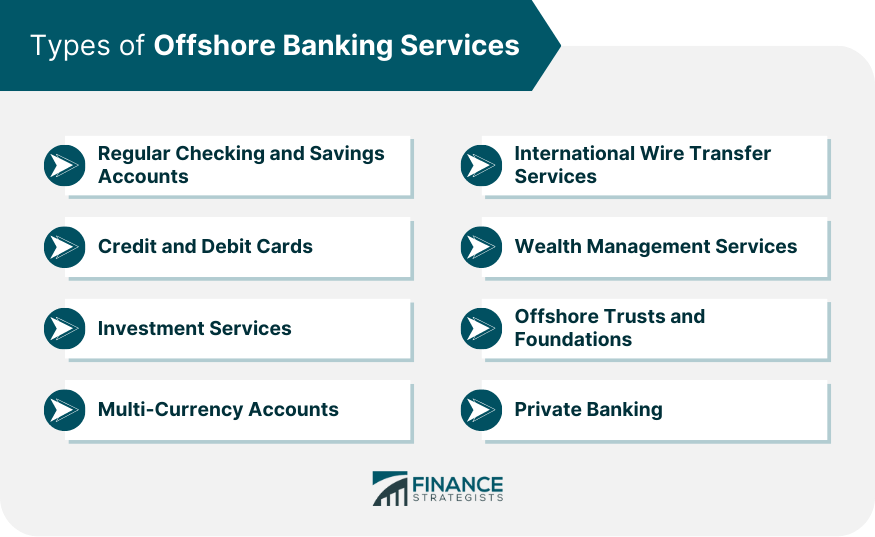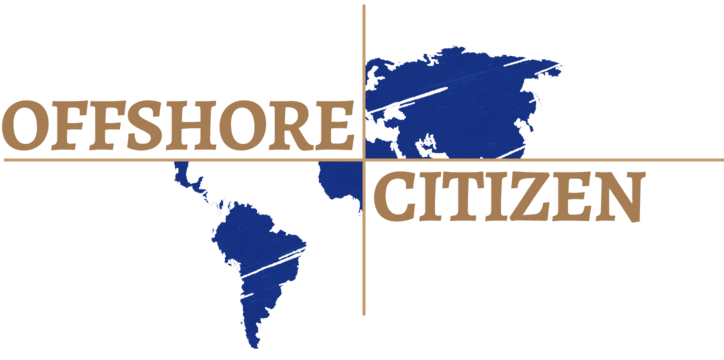Checking Out the Solutions Offered in Offshore Firm Formations: What You Need to Know
Offshore business formations provide a variety of solutions made to promote business success while guaranteeing compliance with legal requirements. These solutions can consist of firm registration, lawful guidance, and plans for personal privacy via nominee supervisors. Furthermore, factors to consider around tax optimization and asset security are essential. Comprehending these aspects can greatly affect one's decision-making procedure. The complexities of picking the appropriate jurisdiction and steering via regulations elevate even more concerns. What should one take into consideration next?
Recognizing Offshore Company Structures
What specifies an overseas company framework? An offshore company is normally registered in an international territory, frequently identified by beneficial regulative environments and discretion. These structures are developed to provide legal separation between the business's possessions and its proprietors, making it possible for a variety of monetary and functional advantages. Offshore business can be developed as numerous types, consisting of limited liability business (LLCs), companies, or counts on, depending on the regulative framework of the selected jurisdiction.
Key attributes of these frameworks include enhanced privacy, asset protection, and ease of worldwide service deals. Furthermore, they frequently call for very little local existence and can facilitate the administration of investments throughout boundaries. The choice of a specific offshore territory can considerably influence the operational abilities and compliance needs of the firm. On the whole, comprehending the intricacies of overseas company frameworks is crucial for financiers and entrepreneurs looking for to maximize their business approaches.
Tax Benefits of Offshore Firms
Offshore firms provide significant tax benefits that can enhance earnings and economic effectiveness for company owner. One of the key advantages is the potential for lowered company tax prices, which can be notably lower than those in the proprietor's home nation. Numerous overseas jurisdictions give tax motivations, such as tax holidays or exceptions on particular kinds of income. In addition, offshore firms might take advantage of positive tax obligation treaties, enabling for the reduction or removal of withholding tax obligations on returns, nobilities, and passion. This can cause increased money flow and far better reinvestment possibilities. In addition, some overseas entities can operate under a territorial tax obligation system, which just taxes revenue created within that jurisdiction. This framework can be specifically advantageous for companies involved in international trade or online solutions, allowing them to optimize their tax obligations while preserving conformity with international regulations. On the whole, these tax benefits can considerably add to long-lasting monetary success.
Privacy and Privacy Attributes
Just how can local business owner guard their delicate info while taking advantage of international opportunities? Offshore company formations provide robust personal privacy and discretion features that appeal to entrepreneurs looking for discretion (Offshore Company Formations). Numerous jurisdictions provide nominee services, permitting people to assign 3rd parties as supervisors or investors, thereby concealing their identities from public records
Furthermore, strict data protection legislations in countless offshore areas assure that delicate information stays private. Offshore firms typically profit from improved financial privacy, with policies that shield client identities and financial transactions.
The use of private addresses for signed up workplaces reduces direct exposure to public examination.
These personal privacy steps enable organization owners to run with higher self-confidence, recognizing their sensitive information is safe. By leveraging these features, business owners can concentrate on tactical development possibilities without the constant worry of info exposure.
Asset Security Techniques
While guiding with the intricacies of international organization, entrepreneurs should prioritize property defense to protect their riches from prospective risks. Offshore business formations supply durable strategies for minimizing exposure to legal insurance claims, creditor actions, and political instability. One reliable approach involves developing a limited obligation company (LLC), which separates individual assets from service obligations, consequently offering a shield against suits.
Furthermore, business owners can use depend hold possessions, ensuring they remain shielded from lenders and legal conflicts. Jurisdictions with strong asset security legislations, such as Nevis or the Cook Islands, are usually favored for their beneficial guidelines. Implementing correct insurance plan and expanding financial investments even more improves safety and security, minimizing susceptability to market variations. Generally, utilizing these approaches within an overseas framework not only advertises riches preservation however also fosters long-lasting monetary stability, permitting entrepreneurs to concentrate on growth and development without excessive concern over property exposure.

Opening Up Offshore Financial Institution Accounts
Opening up offshore checking account includes understanding the different account kinds offered, which can deal with different financial needs. Additionally, the documentation procedure is necessary, as it commonly needs certain types of identification and evidence of house. This review will clear up the options and demands for people and services seeking to develop offshore banking partnerships.
Account Types Provided
Offshore savings account been available in various kinds, each developed to accommodate various monetary requirements and goals. Personal accounts are customized for people looking for personal privacy and asset defense, while company accounts assist in organization deals and management of firm funds. Multi-currency accounts are prominent amongst international financiers, enabling for purchases across various currencies without excessive conversion charges. Additionally, savings accounts use interest on down payments, interesting those aiming to grow their properties firmly. Some financial institutions likewise give investment accounts, providing customers accessibility to various financial investment possibilities. Each account type might come with distinct advantages and features, enabling clients to select the one that aligns best with their Recommended Reading financial methods and purposes. Understanding these alternatives is fundamental for efficient overseas financial.
Needed Documentation Refine
To effectively open up an offshore savings account, possible clients need to prepare a set of specific documents that satisfy regulatory demands. This typically includes a legitimate ticket or government-issued recognition to validate identification. Clients are additionally required to give proof of home, such as an energy bill or financial institution statement, dated within the last 3 months. In addition, a comprehensive summary of the resource of funds is necessary to ensure compliance with anti-money laundering policies. Some financial institutions may ask for an organization plan or referral letters, specifically for corporate accounts. Each jurisdiction may have unique needs; as a result, seeking advice from a professional in overseas services is a good idea to determine all paperwork is complete and exact, promoting a smoother account i loved this opening procedure.
Conformity and Governing Factors To Consider
Navigating the complexities of conformity and regulative factors to consider is crucial for any entity seeking offshore firm developments. Entities need to stick to numerous international and neighborhood regulations that control economic activities, tax, and corporate administration. Trick regulations typically include anti-money laundering (AML) legislations, know your customer (KYC) methods, and coverage demands to guarantee openness.
Furthermore, firms have to continue to be vigilant regarding modifications in legislation that may impact their functional standing. Failure to abide can result in severe charges, consisting of fines or the dissolution of the firm. Engaging with monetary and lawful professionals that focus on overseas policies can provide critical assistance in steering with these intricacies.
Furthermore, comprehending the effects of tax obligation treaties and worldwide contracts is essential for keeping conformity. Business need to focus on establishing durable conformity structures to reduce threats and guarantee long-lasting sustainability in their offshore endeavors.
Picking the Right Offshore Territory
Exactly how does one identify one of the most ideal offshore jurisdiction for company development? The selection of jurisdiction is critical and involves a number of factors. Initially, one must evaluate the lawful framework and policies regulating business in prospective territories. Favorable tax programs, such as low or absolutely no corporate tax obligations, are typically a primary factor to consider. In addition, the political security and online reputation of the territory play considerable functions in guaranteeing the protection of properties and compliance with international standards.
The availability of banking services and the additional reading ease of doing organization ought to not be forgotten. A territory offering durable discretion arrangements can also be advantageous for those looking for personal privacy. Lastly, examining the expenses related to firm development, maintenance, and potential lawful charges is crucial. By evaluating these factors, one can make an educated choice, making sure that the picked offshore jurisdiction aligns with their business objectives and operational requirements.

Regularly Asked Inquiries
How much time Does the Offshore Firm Development Process Typically Take?

The offshore business formation procedure normally takes anywhere from a few days to numerous weeks. Offshore Company Formations. Variables affecting this timeline consist of territory, paperwork efficiency, and details solution providers entailed in the formation procedure
What Are the Initial Prices Entailed in Establishing an Offshore Company?
The preliminary prices for establishing an offshore business can differ commonly, normally incorporating registration costs, lawful expenditures, and added fees for services like checking account setup and compliance, typically completing a number of hundred to several thousand bucks.
Can People Kind Offshore Companies Without Specialist Help?
People can practically develop offshore firms separately; nevertheless, they typically come across complicated lawful and regulatory requirements. Offshore Company Formations. Specialist support is suggested to browse these challenges successfully and assure conformity with appropriate legislations and laws
What Documents Are Needed for Offshore Firm Registration?
The files needed for overseas firm enrollment usually consist of recognition evidence, a detailed company plan, proof of address, and, in some territories, an affirmation of advantageous possession and resolutions from supervisors.
Exist Ongoing Upkeep Fees for Offshore Firms?
Continuous upkeep fees for offshore companies are usually called for to ensure conformity with regional laws. These fees may consist of yearly revival charges, signed up agent services, and bookkeeping, varying by jurisdiction and specific firm framework.
